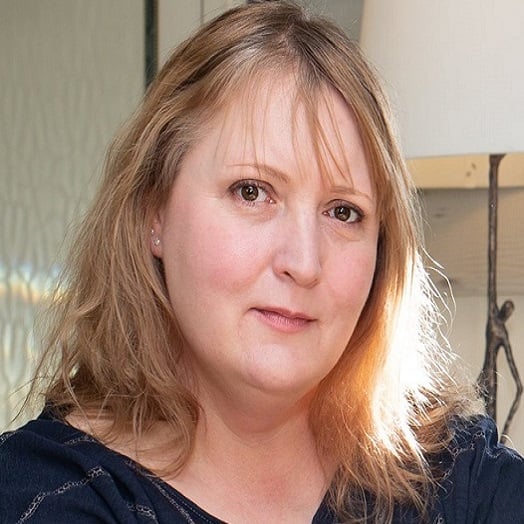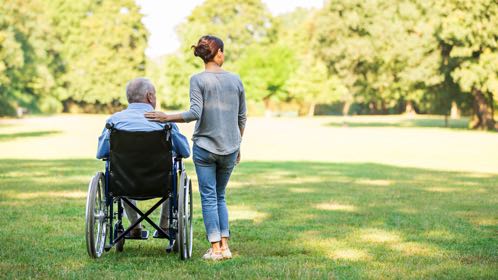What My MS Diagnosis Taught Me About Friendship

There is a saying that “hard times will always reveal true friends”. And like all clichés, there is a ring of truth behind it.
Before my MS diagnosis, I had a great circle of friends. Although we all had busy lives, we tried to make time to catch up, keep each other in the loop, and generally act as cheerleaders and consolers in equal measures. As someone who has lived in many places, these friendships kept me rooted and created many shared memories and narratives.
Fast-forward to after MS diagnosis, and the landscape of my friendships had completely altered. Colleagues at work - people I considered friends - began a campaign of bullying which eventually resulted in a legal case.
Closer to home, other friends stopped calling. Perhaps they were tired of me constantly cancelling or rearranging a get-together, as MS fatigue began to take hold. Coupled with the turmoil MS had created in my life, I was shunted down an unfamiliar, frightening path. One which not all of my friends felt able to be part of.
My true friends revealed themselves
Coming through the darkness, I realised something odd had happened. The people I thought would stick by me no matter what, had disappeared. However other friends surprised me by pulling me out of the abyss and revealed themselves as true friends.
They listened to me going over and over my fears, my symptoms, and endured my endless wailing at the sheer unfairness of it all. They visited me when I couldn’t raise myself from the sofa. They offered me a kind ear, brought magazines, and helped around the house. One friend would even leave me homemade cakes by my front door on her way to work.
Being supported when I needed it the most
The first years after my diagnosis were dark times, coping with the symptoms of MS, while I looked for a new job and supported my son. It was utterly lonely. My life had pushed me in a completely different direction from my friends and I had no map. Looking back, it was as if those true friends held out candles in the darkness, letting me know that actually, I wasn’t alone.
I realise now that my actions were necessarily selfish, as I fashioned a new life from the wreckage of the old. I was obsessed with finding out everything possible about MS. I was focused on the legal case I had at work, which tore me up inside. I was preparing for MS treatment. And in amongst all this, I was preparing my son to start high school, while desperately trying to keep life as ‘normal’ as possible. Despite all this, some friends saw me through this turbulent time and put their own problems on the back burner.
Other friends - ones I was only on nodding-terms with at the school-gates and my son’s rugby club - stepped in and took him to practice. They went to parent’s evening on my behalf and whisked him off for trips to the beach, sleepovers and barbecues.
MS changed my definition of friendship
Once I was back on my feet (no pun intended) and learning to cope with the daily trials of living with MS, I knew that I had also changed as a friend. No longer would I be able to withstand a night out at the local wine bar. The loos were far away, the place crammed with people. Day trips were ill-advised. Spur of the moment meet-ups were a thing of the past. Yet I was still me and wanted to be the best friend possible, within the circumstances.
It was important for me to realise that friendships were a two-way process. So I set about crafting a new way to be a friend - and a good one at that. I knew that I would be home from work by 2pm every day, so I let my friends know that they were welcome to pop over any time in the afternoon. Sure, it wasn’t the same as a coffee shop, but they were guaranteed good coffee and biscuits.
In the evenings, I would invite friends to share a bottle of wine as we sat comfortably on squishy sofas in my cottage. I’d light candles, lower the lights and put some nice music on. Again, I could never recreate a night out, but it was the next best thing. Plus, we didn’t have to dress up.
MS has made me a great listener and I seem to focus much more on the present now. If a friend is sitting at my kitchen table, they are the most important person to me in that moment. My friendships now have a much deeper meaning. I may not see them as much, but our bond is stronger.
The friendships I have made through my blog and on Twitter are equally as important to me. I only need to send out a sad little tweet on a bad day, and the replies I receive keep me going.
The takeaway
Friendship takes many forms when you are living with a chronic illness. If I could give anyone going through a similar situation one piece of advice, it would be:
“Aim to be the friend you needed during your darkest times.” If you can return the love and kindness, you will always feel supported. “Good friends are like stars. You don’t always see them, but you know they are always there.”












